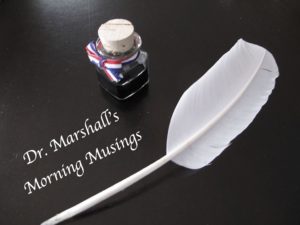Don’t Forget Emotional/Behavioral Milestones
As developmental neuropsychologists, we are always a little amused when new parents talk about their children’s acquisition of developmental milestones. Oh my baby walked at 10 months, she had her first words at 13 months, and he was reading by age four. Cleary, the acquisition of motor and speech/language milestones is crucial to later life success; we applaud parents who monitor their children’s developmental milestones. It’s a good way to ensure that our children are “on track” and will be ready for the next stage of development.
When we track and monitor a child’s development, we generally observe five areas: gross motor, fine motor, cognitive, speech/language, and emotional/behavioral abilities. And while most of us do a good job of tracking the first four, things get a little fuzzy with the last one. I have to confess, even I was less clear about age-appropriate expectations and what I should do about the acquisition of my kids’ emotional/behavioral abilities. I had charts for motor and speech milestones, but I didn’t have one for emotional/behavioral milestones.
In our clinical work, we see children and adolescents who are doing well in most areas, but who are struggling when it comes to the acquisition of emotional and behavioral abilities. Just as there are major speech and motor milestones to achieve at specific ages, so too, there are specific emotional and behavioral milestones to achieve at certain times. For example, by age five, children should be able to control their emotions, to transition from one activity to another, and to clean up their own messes. If, not, they go to school thinking that it is okay to have a temper tantrum in class, that it’s okay to continue doing something even after being instructed to stop, and that someone else will clean up their messes. For children with these misconceptions, school can be a real challenge.
But what are these critical abilities? At what age should they be acquired? And how do I foster their development or acquisition? To begin, there are five critical mile markers at ages 3, 5, 8, 12, and 18. At age three, for example, a child should be securely attached to a nurturing caregiver and is now ready to venture out on her own. At age eight, he should be able to self-regulate.
There are three things parents need to know and to do to make sure children are developing age-appropriate emotional and behavioral abilities. First you need to KNOW when certain abilities should be acquired. Second, you need to EXPECT your child to achieve that ability at a certain age. And three, you need to provide your child with the OPPORTUNITY to develop it.
Age five provides a good example. First, a parent needs to know that a child should be able to control his or her emotions by age five. While temper tantrums are normal at ages two and three, they should be a thing of the past by age five. Second, your child should know that you expect her to control her emotions and to begin to use other problem solving strategies. They must know that temper tantrums at not acceptable at this age. You can’t tolerate tantrums and expect them to disappear on their own. Children must know the expectation. And third, they need to have the opportunity to learn how to control their emotions. Put them in activities such as dance, music, or sports where they are challenged to acquire new abilities, to play by the rules, and to learn that others are more skilled than they are. Yes, these are frustrations, but children learn to manage their frustrations by confronting them.

About the author